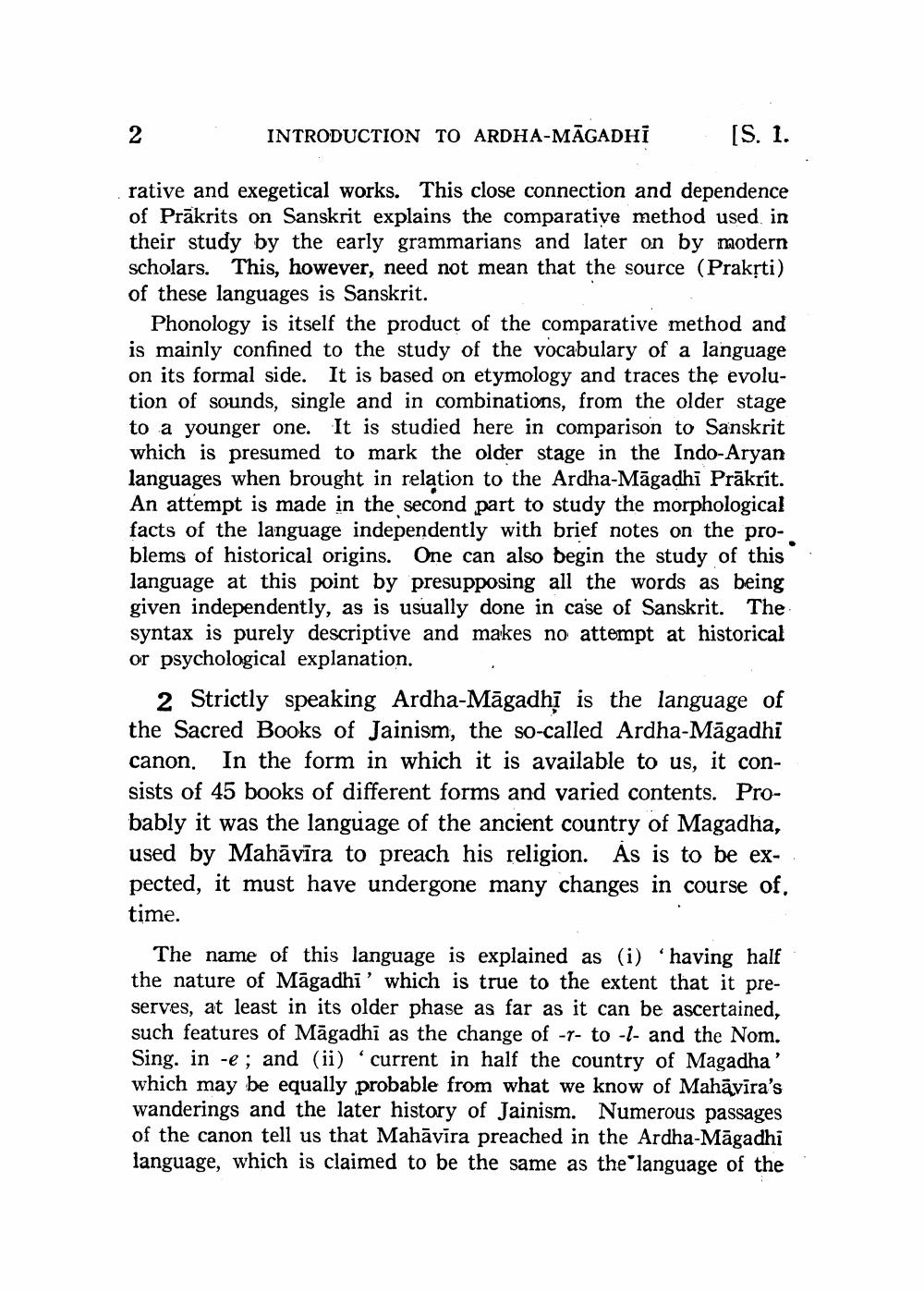________________
INTRODUCTION TO ARDHA-MĀGADHI
(S. 1.
rative and exegetical works. This close connection and dependence of Prākrits on Sanskrit explains the comparative method used in their study by the early grammarians and later on by modern scholars. This, however, need not mean that the source (Prakrti) of these languages is Sanskrit.
Phonology is itself the product of the comparative method and is mainly confined to the study of the vocabulary of a language on its formal side. It is based on etymology and traces the evolution of sounds, single and in combinations, from the older stage to a younger one. It is studied here in comparison to Sanskrit which is presumed to mark the older stage in the Indo-Aryan languages when brought in relation to the Ardha-Māgadhi Prākrit. An attempt is made in the second part to study the morphological facts of the language independently with brief notes on the problems of historical origins. One can also begin the study of this language at this point by presupposing all the words as being given independently, as is usually done in case of Sanskrit. The syntax is purely descriptive and makes no attempt at historical or psychological explanation.
2 Strictly speaking Ardha-Māgadhî is the language of the Sacred Books of Jainism, the so-called Ardha-Māgadhi canon. In the form in which it is available to us, it consists of 45 books of different forms and varied contents. Probably it was the language of the ancient country of Magadha, used by Mahāvīra to preach his religion. As is to be expected, it must have undergone many changes in course of. time.
The name of this language is explained as (i) 'having half the nature of Māgadhi' which is true to the extent that it preserves, at least in its older phase as far as it can be ascertained, such features of Māgadhi as the change of -1- to -1- and the Nom. Sing. in -e; and (ii) current in half the country of Magadha' which may be equally probable from what we know of Mahāvīra's wanderings and the later history of Jainism. Numerous passages of the canon tell us that Mahāvira preached in the Ardha-Māgadhi language, which is claimed to be the same as the language of the




